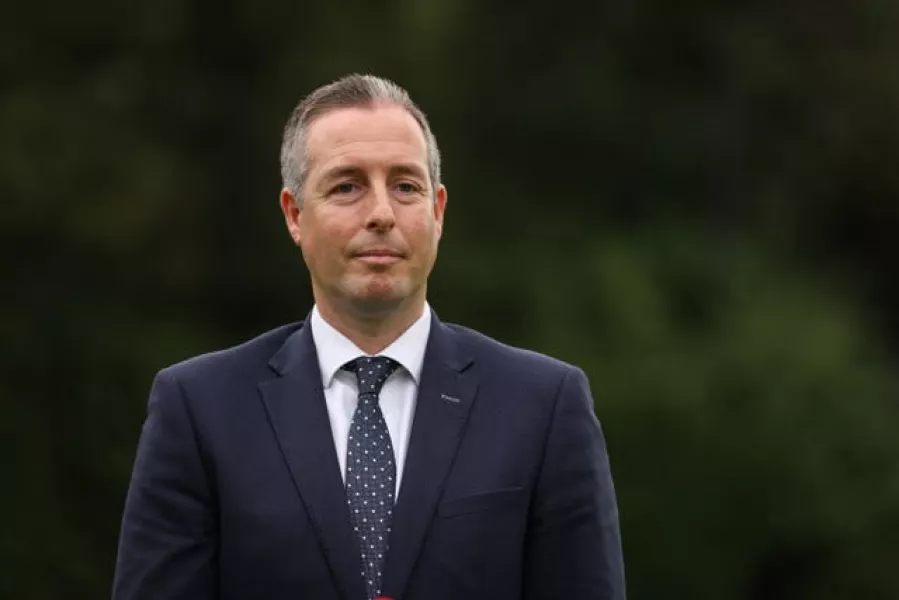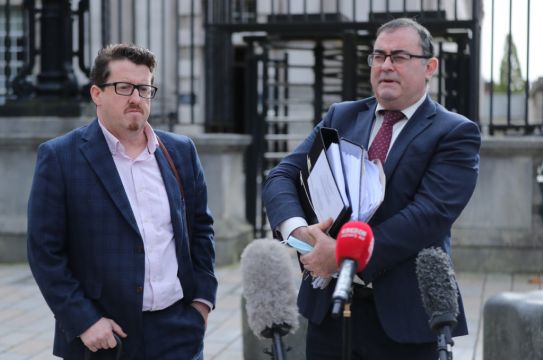A legal challenge against the DUP’s boycott of cross-border political meetings is a matter of “some public interest and importance”, a High Court judge has said.
Mr Justice Scoffield made the comments as he delayed a full hearing in judicial review proceedings against the party’s stance.
The decision was made after lawyers for a Belfast businessman behind the legal challenge were provided with documents from the Executive Office outlining procedures and scheduling of meetings of the North South Ministerial Council (NSMC).
The DUP has vowed to disengage from the structures of the NSMC, apart from meetings on health issues, as part of its protest against Brexit’s Northern Ireland Protocol.
But last month, Justice Scoffield ruled the DUP position was unlawful following a challenge by businessman Sean Napier.
Despite the ruling, the DUP continued to stay away from previously planned North-South meetings.
In the High Court on Friday, Ronan Lavery QC, representing Mr Napier, said they had received the documents from the Executive Office half an hour before the court hearing.
He said: “We have just received the documents which we had requested on this issue of what has and has not happened in the setting up of meetings to date and meetings that are due to take place in the coming weeks.”
Justice Scoffield said: “From a very brief scan it looks as if you are being provided with a very significant range of new documentation.
“It looks to me that will give everyone, and me in particular, a much fuller picture of what has been going on and what is planned.”
The case had been due to move to a full hearing on Tuesday, but lawyers for both sides said more time would be required to go through the newly released documentation.
Justice Scoffield said: “I am conscious that these proceedings are a matter of some public interest and importance, so if it can achieved, I don’t want the court’s diary to be taken as a reason for not getting on with the proceedings quickly.”
The judge asked if further meetings of the NSMC were planned, beyond two scheduled this month.
Mr Lavery said: “There is a plenary meeting due to take place in December, and it would be very important that that meeting takes place.
“In terms of ranking of importance, the plenary meeting takes place twice a year, and it would be extremely disappointing if that meeting could not take place.”
Some recent meetings of the NSMC have been unable to take place as, under Stormont rules, such meetings with the Irish Government cannot proceed without the participation of both a unionist and a nationalist minister from the Northern Ireland Executive.
Mr Napier has signalled his intent to seek an order from the court mandating the DUP to participate in the meetings.
The judge also asked for an update on the representation of the five DUP Ministers named as respondents in the case.
Previous hearing heard that DUP First Minister Paul Givan and junior minister Gary Middleton were not legally represented in judicial review proceedings.

Three other DUP ministers named as respondents in the challenge – Gordon Lyons, Edwin Poots and Michelle McIlveen – are represented in court.
The court has previously been told that the joint nature of Stormont’s Executive Office means Mr Givan and Mr Middleton cannot be legally represented without the approval of Sinn Féin deputy First Minister Michelle O’Neill.
Barrister Dr Tony McGleenan GC, representing the other three DUP ministers, said he believed the case could be presented in a way which did not require specific representation from the First Minister or junior minister.
The judge agreed to review the case on Tuesday.
After Friday’s hearing, Mr Napier’s solicitor Paul Farrell, from McIvor Farrell, said: “Our client welcomes the court’s observation that this case is of public interest and importance.
“We are disappointed that disclosures requested touching on the actions of the DUP First Minister only came in today, resulting in a postponement of next week’s hearing.
“However the issues are complex and go to the heart of good governance in Northern Ireland and in those circumstances we intend to review the disclosed material forensically.”







